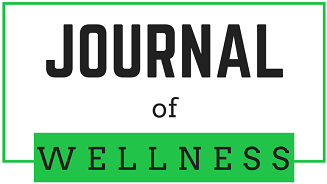
Abstract
Introduction: The COVID-19 pandemic has driven many health care institutions in the United States beyond their capacity. Physicians-in-training in graduate medical education programs have suffered the strain of providing patient care during this unprecedented time of crisis. The significant prevalence of pre-existing resident and fellow burnout and depression makes the need for action by institutions to support the well-being of residents and fellows even more urgent. We aim to describe innovative adaptations our Office of Graduate Medical Education implemented with the support of institutional leadership as responses to promote the well-being of residents and fellows on the frontlines during the COVID-19 pandemic.
Methods: The Office of Graduate Medical Education (GME), in collaboration with the Office of Well-being and Resilience, developed a set of resources and interventions to support trainees during the pandemic based on four major categories: workplace culture, personal factors and health, mental health support, and workplace efficiency and function. Examination of the capacity of existing services and gaps that needed to be filled in the rapidly evolving early days of the COVID pandemic led to a robust growth in resources. For example, the already established Student and Trainee Mental Health program was able to expand and adapt its role to serve trainee needs more effectively.
Results: We expanded resources to target trainee well-being across a broad array of domains within a short time frame. With investment in access to the Student and Trainee Mental Health program, utilization increased by 25.7%, with 1,231 more visits in 2020 compared to the number of visits in 2019, prior to the COVID-19 pandemic. The creation of Recharge Rooms had a positive impact on the well-being of health care workers. After a single fifteen-minute experience in the Recharge Room, an average 59.6% reduction in self-reported stress levels was noted by users. Other interventions were noted to be helpful in regular town hall meetings with trainees.
Conclusion: Addressing trainee well-being is an essential aspect of a crisis response. The Mount Sinai Health System was able to care for the physical, mental, psychosocial, and safety needs of our trainees thanks to the collaborative effort of a pre-existing institutional well-being program and the GME Office. The ability to implement such a response was enabled by our well-being foundation, which allowed leadership at the highest institutional level and the Office of GME to provide support in response to this unprecedented crisis.
DOI
10.18297/jwellness/vol3/iss2/9
Recommended Citation
Akhtar, Saadia; Dua, Sakshi; Rosenfield, Paul J.; Basloe, Frank H.; Khalid, Muhammad; Ripp, Jonathan A.; and Leitman, Michael
(2021)
"Graduate Medical Education on the Frontlines during the COVID-19 Pandemic in New York City- A Response to Promote Well-being,"
Journal of Wellness: Vol. 3
:
Iss.
2
, Article 9.
DOI: https://doi.org/10.18297/jwellness/vol3/iss2/9
Available at:
https://ir.library.louisville.edu/jwellness/vol3/iss2/9
Included in
Business Administration, Management, and Operations Commons, Health and Physical Education Commons, Psychiatric and Mental Health Commons
